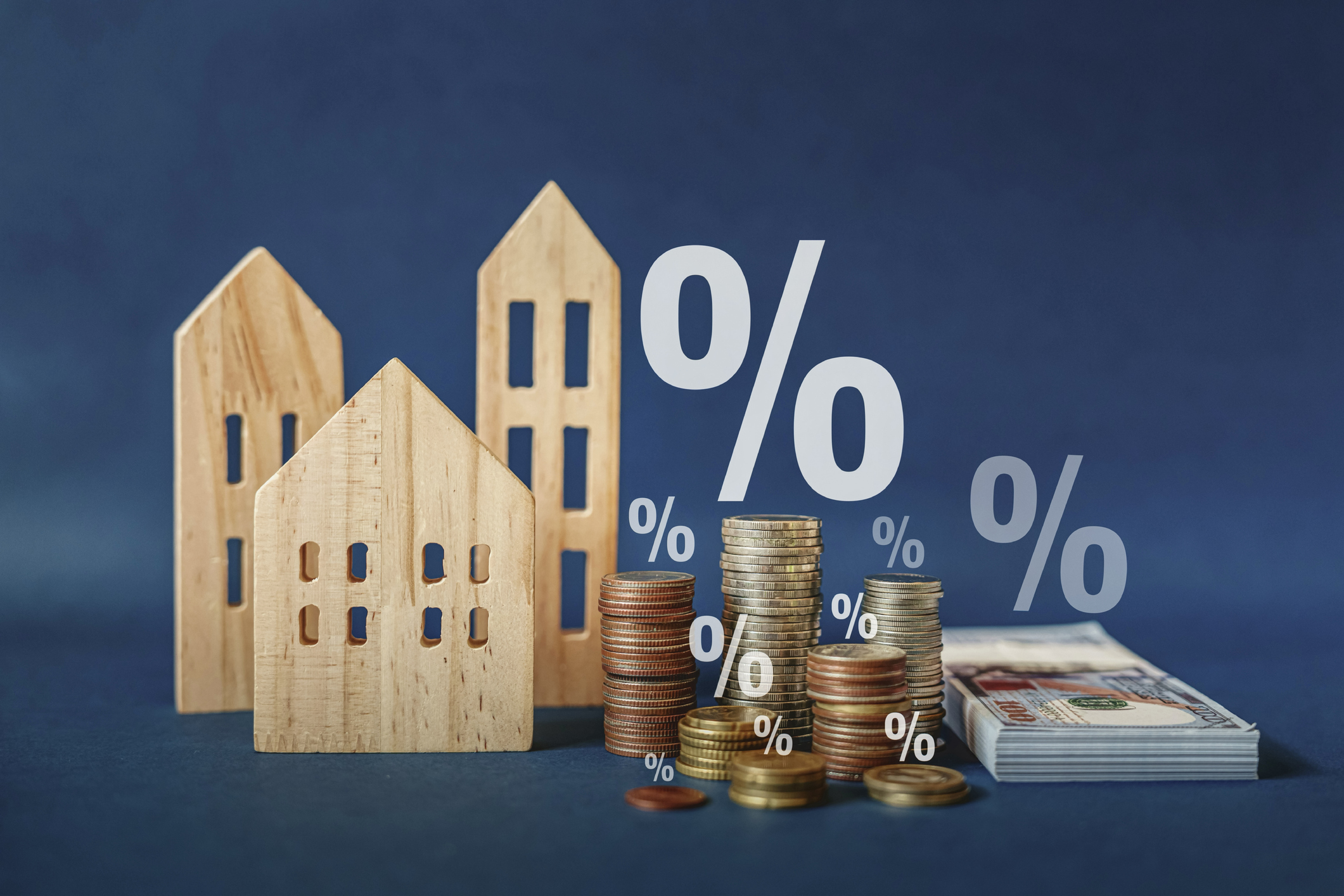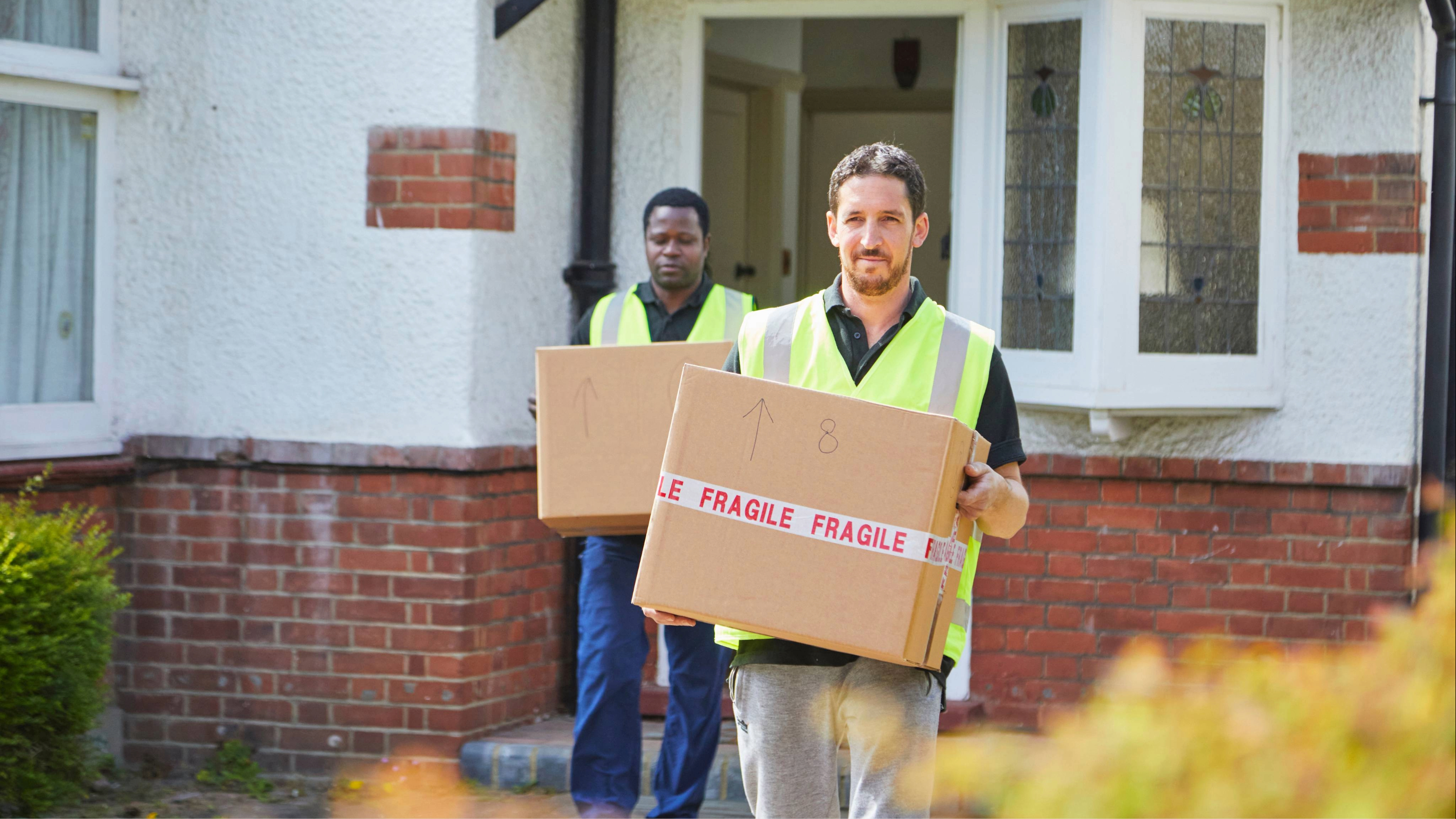How to Save Money Selling a House
Wondering how to save money selling a house? New rules regarding agent fees could help lower costs industrywide. Here's a look at other expenses that are negotiable.


Profit and prosper with the best of Kiplinger's advice on investing, taxes, retirement, personal finance and much more. Delivered daily. Enter your email in the box and click Sign Me Up.
You are now subscribed
Your newsletter sign-up was successful
Want to add more newsletters?

Delivered daily
Kiplinger Today
Profit and prosper with the best of Kiplinger's advice on investing, taxes, retirement, personal finance and much more delivered daily. Smart money moves start here.

Sent five days a week
Kiplinger A Step Ahead
Get practical help to make better financial decisions in your everyday life, from spending to savings on top deals.

Delivered daily
Kiplinger Closing Bell
Get today's biggest financial and investing headlines delivered to your inbox every day the U.S. stock market is open.

Sent twice a week
Kiplinger Adviser Intel
Financial pros across the country share best practices and fresh tactics to preserve and grow your wealth.

Delivered weekly
Kiplinger Tax Tips
Trim your federal and state tax bills with practical tax-planning and tax-cutting strategies.

Sent twice a week
Kiplinger Retirement Tips
Your twice-a-week guide to planning and enjoying a financially secure and richly rewarding retirement

Sent bimonthly.
Kiplinger Adviser Angle
Insights for advisers, wealth managers and other financial professionals.

Sent twice a week
Kiplinger Investing Weekly
Your twice-a-week roundup of promising stocks, funds, companies and industries you should consider, ones you should avoid, and why.

Sent weekly for six weeks
Kiplinger Invest for Retirement
Your step-by-step six-part series on how to invest for retirement, from devising a successful strategy to exactly which investments to choose.
Want to save money selling a house? Start by understanding the true costs associated with a sale. The cost to sell a house may drop soon due to a settlement with the National Association of Realtors over agent fees. But there are other costs beyond agent fees to consider. In fact, there's a wide range of costs you may not have thought of — and some areas where you may be able to cut costs.
Knowing the details of all the expenses to expect means you can stay on top of your finances, helping you avoid any nasty unexpected bills.
Here’s everything you need to know about the cost of selling a home and some tips on how to save money along the way.
From just $107.88 $24.99 for Kiplinger Personal Finance
Become a smarter, better informed investor. Subscribe from just $107.88 $24.99, plus get up to 4 Special Issues

Sign up for Kiplinger’s Free Newsletters
Profit and prosper with the best of expert advice on investing, taxes, retirement, personal finance and more - straight to your e-mail.
Profit and prosper with the best of expert advice - straight to your e-mail.
What is the cost of selling a house?
According to Shelly Salas, HomeLight elite agent in Killeen, Texas, the cost of selling a house depends on several factors, including the “house itself, the current state of your local market, the cost of living, as well as the list prices of other homes in your area.”
She says the average cost of selling a house is about $31,308, but there might be a “little bit of leeway to recoup some of the costs.”
“If we’re in a seller’s market, you might be able to get the buyer to cover more of the costs than usual, especially if various offers are coming through on the property.”
“If the market is more in favor of the buyer, you may have to do more of the heavy lifting by putting in additional work and money to help attract attention from buyers,” she explains.
Overall, a seller can expect to expend between “10 to 12% of the sales price” on sales-related costs, says Salas. That’s only a rough figure, as variables can bring the costs down significantly.
What is the agent commission when selling a house?
Agent commission is likely to be the largest of the costs involved in selling a house, but it isn’t a fixed amount. “The first thing all sellers should know is that commissions are negotiable,” says Salas. “There is no set amount that all agents charge.”
Shelley points to transactional data from HomeLight. It shows the national average real estate agent commission is 5.8% of the property sales price.
But over the past few years, agent commissions have averaged at about 5.47%, which covers both the listing agent and buyer’s agent fees.
That number is expected to change soon, after the National Association of Realtors agreed to pay $418 million and change its rules so as to settle a number of lawsuits over its industry practices. Under the new rules, a seller will no longer have to cover the commission earned by the buyer's agent. The settlement has received the preliminary approval from a judge, with the final approval set for the fall.
What are the marketing costs of selling a house?
Not all selling agents have the same fees and costs. Some agents may charge additional marketing and staging fees, but it varies from realtor to realtor.
Salas says: “When an agent markets your house, there are a few fees you might have to pay. Staging and prep costs can range between 1% and 4% of the typical sale price. When preparing your home for sale, it’s important to declutter ($400 for a dumpster rental) and deep clean the property ($300 per clean), apply a fresh coat of paint if needed ($1,900), brighten up the flooring ($1,800), spruce up your curb appeal ($3,500), and stage your home ($1,600).”
“A seller who completes all of the tasks above would spend nearly $9,500 getting their home ready to market, which comes to around 3% of today’s median home sale price, which sits at $357,300,” she said.
What is the cost of selling your home yourself?
Opting to sell your home yourself to save costs may end up saving you a small fortune in fees, but it does introduce some potential barriers to achieving a good sale price. Salas says the first thing to do is to set a “competitive price.”
Salas says: “Next, take professional photos of your home to attract a larger pool of potential buyers. Homes with high-quality photographs sell 32% faster than those without visuals, according to research from VHT Studios.”
It is also well worth ensuring the description is appealing and creative. Salas says: “Think about how you’d like to depict your home by painting a picture in the buyer’s mind about what sets your property apart from the others in your neighborhood. Highlighting your home’s outdoor features as well as energy-efficient features, which are top buyer preferences today, can also help attract potential buyers.”
Another important factor is to sell the location, particularly if your home is in a prime spot. Salas says: “HomeLight’s 2022 Buyer and Seller Insights report found that the top location-related features in a buyer’s home search include nearby necessities such as gas stations and grocery stores (49%); a walkable neighborhood (35%); a quality school district (31%); proximity to work (30%); and proximity to restaurants and shopping (24%).”
What taxes are payable when selling a house?
Agents’ fees aren’t the only costs to consider when selling a home. Salas says sellers are typically responsible for “prorated taxes from January 1st up to the day of the actual sale of the home,” while most settlement companies have further fees to pay.
On top of this come recording fees and document preparation fees. “These should all be included in the initial percentage cost breakdown that the agent presents to the seller during their initial consultation,” Salas says.
Also, there is no one party responsible for the closing costs, neither is there a set menu of what each side needs to pay. But someone will have to pay the transfer tax, title insurance, prorated property taxes, and homeowner association fees if applicable.
You could be asked to pay some of the buyer’s costs in a buyer’s market where there’s a surplus of homes for sale and low buyer demand.
Related Content
Profit and prosper with the best of Kiplinger's advice on investing, taxes, retirement, personal finance and much more. Delivered daily. Enter your email in the box and click Sign Me Up.

Tom is a journalist and writer with an interest in sustainability, economic policy and pensions, looking into how personal finances can be used to make a positive impact. He graduated from Goldsmiths, University of London, with a BA in journalism before moving to a financial content agency. His work has appeared in titles Investment Week and Money Marketing, as well as social media copy for Reuters and Bloomberg in addition to corporate content for financial giants including Mercer, State Street Global Advisors and the PLSA. He has also written for the Financial Times Group.
When not working out of the Future’s Cardiff office, Tom can be found exploring the hills and coasts of South Wales but is sometimes east of the border supporting Bristol Rovers.
-
 Stocks Sink With Alphabet, Bitcoin: Stock Market Today
Stocks Sink With Alphabet, Bitcoin: Stock Market TodayA dismal round of jobs data did little to lift sentiment on Thursday.
-
 Betting on Super Bowl 2026? New IRS Tax Changes Could Cost You
Betting on Super Bowl 2026? New IRS Tax Changes Could Cost YouTaxable Income When Super Bowl LX hype fades, some fans may be surprised to learn that sports betting tax rules have shifted.
-
 How Much It Costs to Host a Super Bowl Party in 2026
How Much It Costs to Host a Super Bowl Party in 2026Hosting a Super Bowl party in 2026 could cost you. Here's a breakdown of food, drink and entertainment costs — plus ways to save.
-
 We're 62 With $1.4 Million. I Want to Sell Our Beach House to Retire Now, But My Wife Wants to Keep It and Work Until 70.
We're 62 With $1.4 Million. I Want to Sell Our Beach House to Retire Now, But My Wife Wants to Keep It and Work Until 70.I want to sell the $610K vacation home and retire now, but my wife envisions a beach retirement in 8 years. We asked financial advisers to weigh in.
-
 We Inherited $250K: I Want a Second Home, but My Wife Wants to Save for Our Kids' College.
We Inherited $250K: I Want a Second Home, but My Wife Wants to Save for Our Kids' College.He wants a vacation home, but she wants a 529 plan for the kids. Who's right? The experts weigh in.
-
 2026's Tax Trifecta: The Rural OZ Bonus and Your Month-by-Month Execution Calendar
2026's Tax Trifecta: The Rural OZ Bonus and Your Month-by-Month Execution CalendarReal estate investors can triple their tax step-up with rural opportunity zones this year. This month-by-month action plan will ensure you meet the deadlines.
-
 Have You Aligned Your Tax Strategy With These 5 OBBBA Changes?
Have You Aligned Your Tax Strategy With These 5 OBBBA Changes?Individuals and businesses should work closely with their financial advisers to refine tax strategies this season in light of these five OBBBA changes.
-
 Is the Housing Market's 'Lock-In Effect' Finally Starting to Ease?
Is the Housing Market's 'Lock-In Effect' Finally Starting to Ease?As mortgage rates stabilize and fewer owners hold ultra-low loans, the lock-in effect may be losing its grip.
-
 How to Find the Best International Moving Company for Your Big Move Abroad (and Avoid Costly Mistakes)
How to Find the Best International Moving Company for Your Big Move Abroad (and Avoid Costly Mistakes)It's best to use an international moving company to protect your belongings and budget when relocating to another country. Here's how to find a reputable firm.
-
 What to Ask a Contractor Before a Renovation
What to Ask a Contractor Before a RenovationHomeowners should ask these essential questions before hiring a contractor to avoid surprises, protect their investment and keep projects on time and on budget.
-
 I'm 61 and Want a Divorce, but I Worry About My Finances. Should We Live Separately but Stay Married?
I'm 61 and Want a Divorce, but I Worry About My Finances. Should We Live Separately but Stay Married?We asked Certified Divorce Financial Analysts for advice.